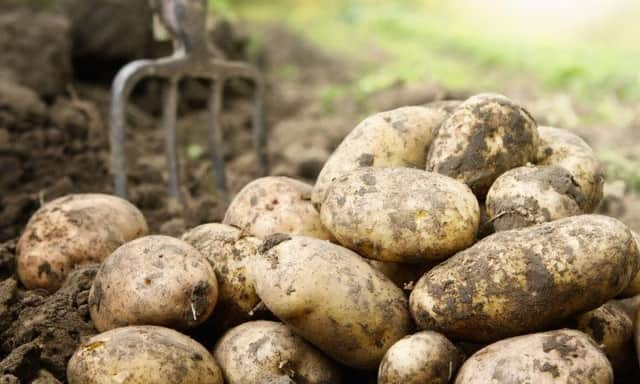Potato conference hears of more post-Brexit fears for Scottish growers


The lack of transport infrastructure and port facilities suitable to allow growers to secure new export markets, the inexorable rise in the area of land infected by potato cyst nematode and the threat of the industry contracting to a level below which it lost critical mass were all revealed as major hurdles faced by the industry.
But Patrick Hughes, who fronts the recently set up Scottish Agriculture Exports Hub – run jointly by NFU Scotland and SAOS - revealed that these problems were among the issues to be addressed in a seed sector strategy, due to be drawn up this spring.
Advertisement
Hide AdAdvertisement
Hide AdHe said that the sector needed to give itself a fighting chance by working towards rectifying the transport and port issues which had dogged exporters in recent times.
And he said that co-operation and collaboration, both within the industry and with other sectors would set the way forward.
Hughes said whisky trade also suffered problems with export facilities in Scotland and a concerted approach to the Scottish Government was needed to explain that if it intended to realise its ambitions to be recognised as a global leader in exports, these issues would need to be addressed.
But the conference also heard a cautionary tale from Northern Ireland which had previously also been an exporter of seed.
Colm McDonnell of the IPM potato group said that as producers in the country had converted to growing ware crops and producing cereals and livestock, the Irish seed sector had collapsed.
This, he said, had left it heavily dependant on importing Scottish seed - and post Brexit the Northern Irish Protocol placed it among the most severely affected by the ban on exports to Europe of seed from Scotland.
The conference also heard that climate change was now a major issue for the industry, with farmers facing two main drivers towards net zero – government targets which guided future support measures and the demands of processors and retailers further down the supply chain.
But SAC senior rural business consultant, Julian Bell said there was an understanding at both Westminster and Holyrood that as it was part of a biological system, farming had natural constraints on curbing emissions of greenhouse gases.
Advertisement
Hide AdAdvertisement
Hide Ad“While the UK as whole has a target of reaching net zero by 2050 – with Scotland aiming to do this by 2045 – agriculture has been set the target of a 46 per cent reduction as it relies on biological processes and the total elimination of emissions from the use of fertilisers and manures and the keeping of livestock can’t be achieved.”
But he warned that both the processors and retailers in the supply chain would set their own targets, which were not only likely to be earlier but also set at net zero with an eye on their marketing and promotional campaigns.
Comments
Want to join the conversation? Please or to comment on this article.